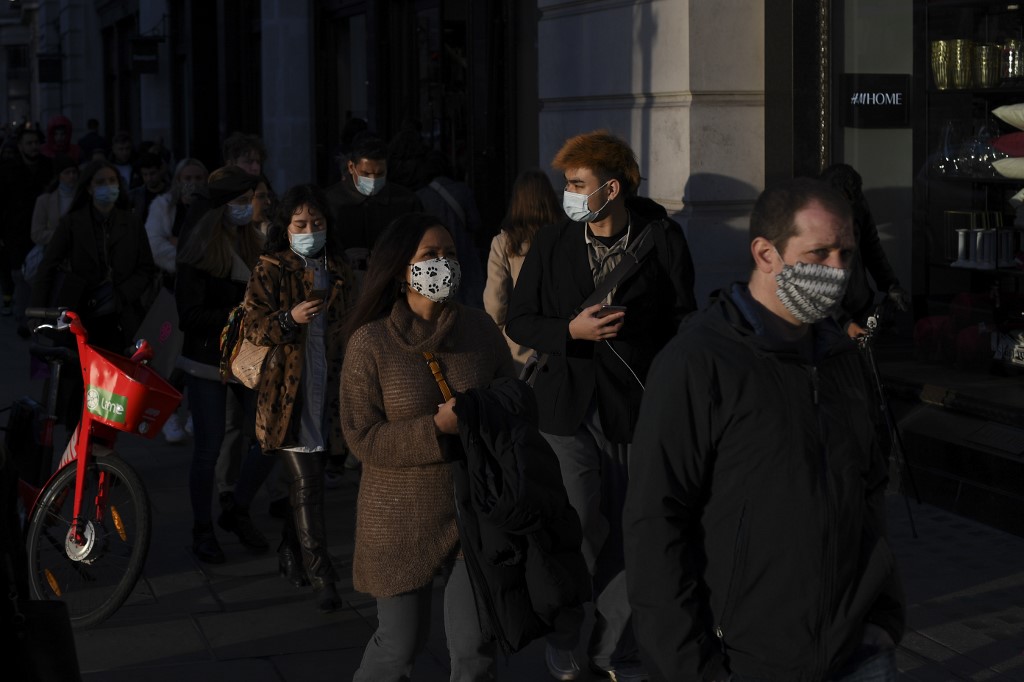NEW YORK : The “fragile” world needs to get its act together and honor those who have died by getting better at fighting COVID-19 because “the next pandemic may be more severe,” Dr. Mike Ryan, head of the World Health Organization (WHO) Emergencies Program, said on Monday.
In the WHO’s final COVID-19 press conference of the year, attended by Arab News, he and other senior officials warned that the virus is “not necessarily the big one.”
It is not just the virus, however, that is killing people, said Ryan. “It’s underprivilege. It’s lack of access. It’s years and years of living with health conditions that haven’t been properly managed because of the color of your skin, your ethnicity or your social group,” he added. “This is still a deeply unfair, deeply inequitable world.”
He said COVID-19 has “ripped away the bandage from an old wound this society has,” which is its refusal to deliver the basic human right of healthcare to the most downtrodden.
Epidemiologist Maria van Kerkhove, the WHO’s technical lead on COVID-19, said countries that had experienced other infectious-disease outbreaks have handled the current pandemic better than other, higher-income countries.
“We’re all kind of fed up with this and we want this to be over,” she added. “This should push us even further, to have even more resolve to end this pandemic. We can’t lose this battle now.”
Van Kerkhove joined WHO chief Tedros Adhanom Ghebreyesus in calling for the world to be better prepared for the next health crisis by providing innovative technology to healthcare workers, informing and engaging citizens, and ensuring fair and equitable distribution of the treatments and vaccines developed this year.
“History tells us that COVID-19 isn’t the last pandemic,” said Ghebreyesus, adding that the WHO continues to discover new things about the virus every day, including the transmissibility of new variants, their capacity to make people sick, and their potential impact on available therapeutics or vaccines.
“Only if countries are testing effectively will you be able to pick up variants and adjust strategies to cope,” he said.
“We must ensure that countries aren’t punished for transparently sharing new scientific findings.”
Looking back on an unprecedented year, Ghebreyesus said the pandemic has made clear that “health isn’t simply a byproduct of development or a luxury for those who can afford it. It’s the foundation of social, economic and political stability.”
While he praised tremendous advances in medical care, he insisted that “the most effective investments are in relatively cheap, essential public health functions like immunization, surveillance, lab capacity, infection prevention and control, health control, improved water and sanitation. These public health basics can be the difference between a local outbreak that’s quickly controlled and a global pandemic.”
He added: “History tells us COVID-19 won’t be the last pandemic. We must learn the lessons it’s teaching us and we must be prepared.”
Sunday was the first International Day of Epidemic Preparedness. Ghebreyesus recalled how last year, the Global Preparedness Monitoring Board had warned that the world remains dangerously unprepared for a pandemic, and said this time “if we fail to prepare, we’re preparing to fail.”
Ryan said vaccinations do not guarantee that infectious diseases will be rooted out, and talk of eradication of the virus is premature.
He urged societies to focus on getting back to full strength rather than on the “moonshot of eradication.”


